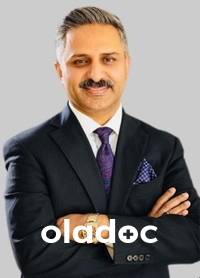The World Health Organization’s definition of health clarifies that health is not merely the absence of disease but also a state of complete physical, social, mental well-being’. This is not only the definition of health from the WHO, but also endorsed by the Centers for Disease Control and Prevention. According to these institutes, being healthy is not just the exclusion of having any disease.
The reason for this is that today ‘managing disease’ is not the only goal, especially when it comes to the older population. Moreover, the definition of health whereby only ‘disease eradication’ is the goal, leaves little room for people with chronic diseases—like hypertension or autoimmune disorders. Having a disease, and feeling healthy do not remain mutually exclusive anymore.
Much of the older population of our country, is battling multiple diseases. Among the most common chronic diseases, there is the management of high cholesterol, arthritis, kidney diseases, osteoporosis, thyroid conditions, hypertension and diabetes. The goal of a healthcare provider is not to completely eradicate these diseases, as that wouldn’t be possible, but to manage these diseases while maximizing function and optimizing medication.
What is good health?
The handling of stress and good mental health is central to living a long and active life. Factors for good health include environment, genetics, education and even relationships. Further factors that can enhance good health include diet, exercise, coping strategies and screening for diseases. The definition of health presented by the World Health Organization (WHO) in 1986 further clarified health as ‘a resource for everyday life, not the objective of living’. This means that health is a resource to support an individual’s function in wider society.
What are the types of health?
The commonly discussed types of health include mental and physical health. Further types include financial health, emotional health, and spiritual health.
Physical health: in a person with peak physical health, the bodily functions are working at a normal level, not only due to the absence of disease but also due to regular exercise and balanced nutrition. For a peak physical health, treatment is sought when necessary, to maintain balance. To make sure you are in peak physical health you should consult a top internal medicine doctor in Karachi.
Moreover, physical wellbeing also involves decreasing the risk of disease through the pursuit of a healthy lifestyle. Elimination of tobacco, drugs and alcohol all constitute a move to the pursuit of physical wellbeing.
Mental health refers to the emotional, psychological, social and psychological wellbeing of an individual. Mental health is just as important as physical health for a full, active lifestyle. Mental health is dependent not only on the absence of anxiety, depression or other disorders but also on an individual’s ability to enjoy life and achieve balance.
A healthy mind is able to feel safe, and secure and adapt to adversity. A healthy mind is also able to reach its full potential easily, and also bounce back from difficulties easily.
In a person with chronic illness, not only is his physical wellbeing affected, but his mental health may also suffer as well. On the other hand, a mental illness such as depression can affect physical wellbeing. Thus, both physical and mental health are not independent of each other, and for this reason, complete ‘health’ should encompass all its types.
What factors are necessary for good health?
As mentioned before, many factors play a role in good health including genetics and environment. According to the World Health Organization (WHO), while access to healthcare plays an important role in health, there are other factors that have a bigger impact. These include: where a person lives, his education level, the state of his surroundings, his relationship with friends and family, and his genetics.
The higher a person’s socioeconomic status, the more likely he is to experience good health. This fact is emphasized by the WHO, as a person with higher socioeconomic status are more likely to experience fewer stresses related to daily living, such as financial difficulties, unemployment, and marital disruption. Moreover, access to healthcare is easier for people with higher socioeconomic status.
Other factors that can impact health include cultural issues. The response of a family to the traditions and customs of society can also have an impact on health. An example can be seen in the Mediterranean people, who are more likely to consume high levels of vegetables and fruits, compared to other cultures who are more into fast food.
Another factor that can impact health is the management of stress. Health problems are more common in people who deal poorly with stress and turn to drugs, smoking or drinking. On the other hand, people who manage their stress through a healthful diet and exercise have a healthier life.
Gender differences can also impact on health factors. In societies where women earn less than men or are less educated, are at a higher health risk than men.
Health should be preserved through a healthy lifestyle, rather than treating illness. Consult your healthcare provider about a thorough physical check-up. Book an appointment with a top general physician in Lahore, Multan and Islamabad through oladoc.com, or call our helpline at 042-3890-0939 for assistance to find the RIGHT professional for your concerns.


.png)













